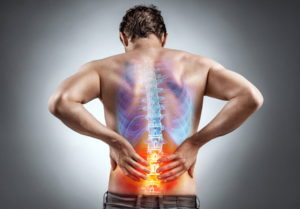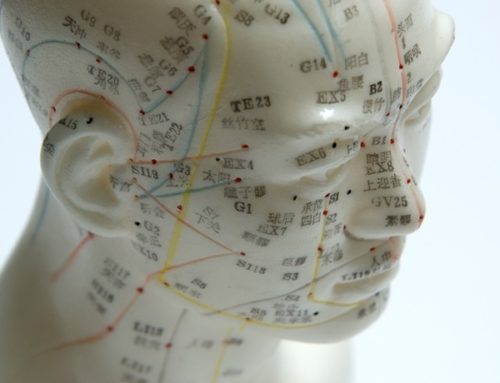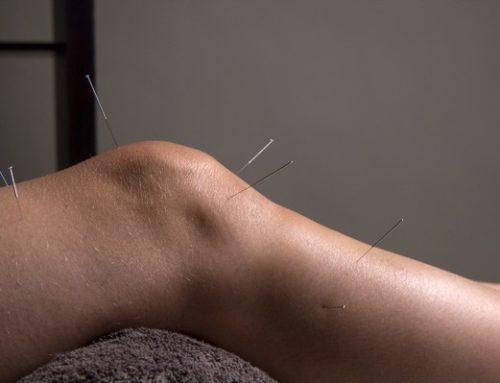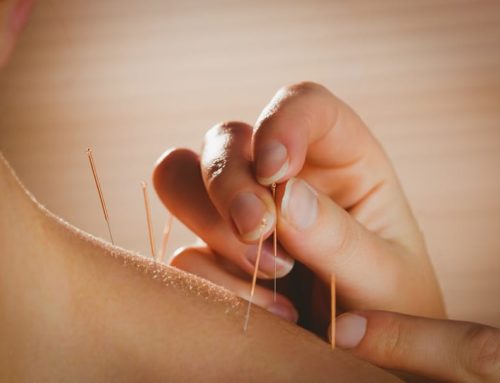Acupuncture can help with alleviating pain from lumbar disc herniation
Overview of back pain
The number of studies that have investigated the use of acupuncture to alleviate intense pain caused by all kinds of diseases and sports injuries is ever increasing and the subject of a common problem encountered by many people regardless of age, gender or profession is back pain. Here the focus is on disc herniation of the lower spine.
More commonly referred to as a “slipped disc” or “ruptured disc,” lumbar disc herniation is the painful instance when one or more discs that form the spinal column bulges toward the spinal canal. When this slip happens, the tough outer wall of the spinal column gets ruptured.
Acupuncture Focus on back injury

Back Pain
This injury commonly takes place in the lower back and is a common reason for chronic lower back pain, as well as a factor that causes painful sensations in other parts of the body. How does it happen? Well it can occur from something as simple as a repetitive cough or persistent sneezing or by a big physical exertion. One patient I had aged in her 90’s had such an injury after tearing down and old garden shed. Credit it to her for giving it a try, the shed came down but her back was not happy. We all have our limits but sometime getting carried away can cause problems.
Pain relief for this condition, mostly recommends analgesic drugs like diclofenac sodium, ibuprofen, and meloxicam (there are too many to list and most people turn to painkillers that they have used before or those preferred by their doctor). Others turn to less conventional treatments like remidial massage, lumbar traction and herbal remedies.
The research evidence to support acupuncture’s effect on slipped discs
Researchers from Jinan University (JNU) evaluated the efficacy of acupuncture when it came to relieving the pain caused by lumbar disc herniation. They canvassed a number of prestigious electronic databases for studies that applied the Chinese medicine/acupuncture to patients with this particular lower back injury.
After eliminating all unrelated or insufficiently applicable studies, they were left with 30 different randomised controlled trials (RCTs). When the participants of all those trials were added up, the patients totaled 3,503.
In addition to acupuncture, the trials used a number of other treatment modalities. Standalone pharmaceutical drugs included diclofenac sodium, ibuprofen, and meloxicam. Drugs taken in combination with others were dexamethasone, ibuprofen, loxoprofen, mannitol, and mecobalamin.
The researchers used statistics software to meta-analyze the results of the 30 RCTs. Furthermore, they used the Grading of Recommendations Assessment, Development, and Evaluation (GRADE) methodology to evaluate the level of evidence presented by each trial.
Acupuncture shown to alleviate the symptoms of lumbar disc herniation
According to the statistical meta-analysis of the RCT results, acupuncture outperformed lumbar traction, ibuprofen, diclofenac sodium, and meloxicam. Acupuncture displayed a higher total effective rate when it came to decreasing the pain caused by a slipped disc.
The visual analogue scale (VAS) measures a characteristic that is difficult to directly evaluate, such as the vague descriptions of pain and relief. Based on this scale, acupuncture did better than lumbar traction and diclofenac sodium in treating patients with lumbar disk herniation.
The Japanese Orthopaedic Association (JOA) score is used to determine the level of clinical symptoms found in spinal conditions like cervical compressive myelopathy and ruptured disks. Acupuncture achieved a better JOA score than lumbar traction, a drug-free orthopedic method used to readjust the spine and improve the lower back.
Finally, two additional trials compared the VAS scores of acupuncture against either ibuprofen or a combination of mannitol and dexamethasone. In all of these trials, acupuncture achieved higher total effectiveness and great pain-relieving effects.
The JNU review concluded by suggesting that acupuncture is an effective means of treating the symptoms of lumbar disc herniation. It also recommends new randomised controlled trials with larger numbers of participants to verify these findings.
What next
If you are looking for drug-free means of relieving pain, please contact me. Although this article focuses on a particular type of back pain the treatment itself is versatile and can help with various types of back pain including pulled/strained muscles.



